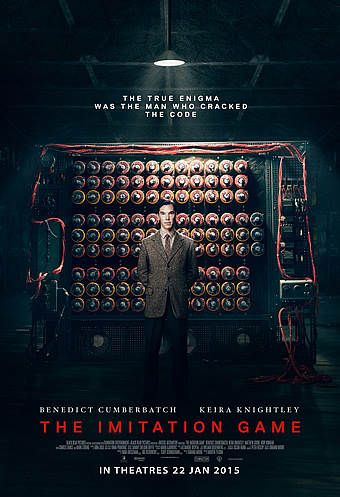OPPENHEIMER (2023)
Genre: Drama
Director: Christopher Nolan
Cast: Cillian Murphy, Emily Blunt, Robert Downey, Jr., Matt Damon, Rami Malek, Florence Pugh, Benny Safdie, Michael Angarano, Josh Hartnett, Kenneth Branagh
Runtime: 3 hrs
Rating: M18 (Sexual Scenes)
Released By: UIP
Official Website:
Opening Day: 20 July 2023
Synopsis: Written and directed by Christopher Nolan, Oppenheimer is an IMAX-shot epic thriller that thrusts audiences into the pulse-pounding paradox of the enigmatic man who must risk destroying the world in order to save it.
Movie Review:
‘Oppenheimer’ is Christopher Nolan’s first biopic, but it’s evident why Nolan was drawn to this tale of an “American Prometheus”. That reference doesn’t come from Nolan though; instead, it was authors Kai Bird and Martin J. Sherwin who referred to J. Robert Oppenheimer’s triumph and tragedy as akin to that Greek god’s fate. Anyone familiar with Nolan’s works though will recognise the similarity between his real-life protagonist here and his fictional protagonists from his previous works – like Jessica Chastain’s Murphy Cooper in ‘Interstellar’ or Leonardo DiCaprio’s Dom in ‘Inception’, Oppenheimer is likewise grappling with the burden of his genius.
That burden is the crux of this sprawling three-hour epic. As the architect of the atomic bomb, Oppenheimer was celebrated for his scientific achievement, and praised as a hero for ending the war; yet equally, he was wracked by guilt over Hiroshima and Nagasaki, as well as the implications it would have on the United States’ relationships with both its allies and enemies. And in the titular role is one of Nolan’s favourite character actors, Cillian Murphy, who delivers a career-topping performance – besides being commanding throughout, what truly stands out is Murphy’s portrayal of the complex emotions that rage beneath his character’s deceptively silent, still centre.
Right from the beginning, Nolan establishes two timelines along which the movie unfolds. Along one timeline – in colour, and with the opening text reading ‘Fission’ – is the story of Oppenheimer’s formative years, spanning his time in Cambridge studying theoretical physics, his teaching foray at Berkeley where he meets fellow physicist Ernest Lawrence (Josh Hartnett), his dabbling into left-wing politics due to the influence by his younger brother Frank (Dylan Arnold), and his affair with Jean Tatlock (Florence Pugh) and eventual marriage to Kitty (Emily Blunt).
It is also during this time that he learns of the German’s breakthrough with nuclear fission, and when Hitler invades Poland, setting the stage therefore for his recruitment by Gen. Leslie Groves (Matt Damon) and Lt. Colonel Kenneth Nichols (Dane DeHaan) to be the director of the Manhattan Project to develop an atomic bomb for the United States. To do so, Oppenheimer will lead a team at Los Alamos, New Mexico, becoming “founder, mayor and sheriff” of a community of thousands of researchers and family members over a three-year period.
The culmination of this is the Trinity test, where a plutonuium device named Gadget would be dropped from the top of a 100-foot tower to the ground. Nolan’s proclamation that no CGI was used in the making of this movie makes his staging of the Trinity sequence even more truly shock-and-awesome. Just as impressive is how Nolan builds towards that countdown sequence, starting with the construction of the tower, the assembly of the Gadget and hoisting it above ground, the unexpected bad weather just the night before, and the minutes and seconds leading up to the push of a red button that would lead to its detonation.
Along the other timeline – in black and white, and labelled ‘Fusion’ – sees an agitated Lewis Strauss (Robert Downey Jr) about to go through a Senate confirmation hearing before his appointment into President Truman’s cabinet as commerce secretary. An early scene shows how Strauss had tried to recruit Oppenheimer to a position in Princeton, but is rebuffed with a condescending remark about Strauss’ past as a shoe salesman, and is equally snubbed by Albert Einstein (Tom Conti) shortly after. We shan’t spoil the details for those not already familiar with the story, but let’s just say it is this third act that cements Oppenheimer as a tragic hero.
Much has also been said about how Nolan had written the screenplay in the first-person, and say what you may, ‘Oppenheimer’ is a compelling character study. Nolan paints Oppenheimer as a man who delights in paradoxes but who was equally wracked by the paradox of having created a weapon with grave implications for the world. In particular, the gravity of his invention becomes undeniable after the Hiroshima and Nagasaki bombings, and Oppenheimer is irrevocably transformed by his role in the creation of weapons of mass destruction and therefore motivated to raise the alarm about the dangers of nuclear war, even if it meant martyring himself.
Besides being about the man himself, ‘Oppenheimer’ is also a reflection of the politics of the era, as well as of our current times. Strauss represents the worst of what this transformational scientific discovery became – the ability to hang onto power, to unleash it, and to show that might can ultimately determine what and who is right. It is no secret that the ramifications of the atomic bomb extended firstly to the Cold War between the United States and Russia, and subsequently to the arms race that followed, as well as the current apocalyptic outcome everyone fears could come out of the ongoing Russia-Ukraine conflict.
So indeed, ‘Oppenheimer’ is – per Paul Schrader’s words – the “most important film this century”. In the hands of Nolan, one of the most masterful filmmakers of this generation, ‘Oppenheimer’ is a deeply intriguing study of ideas, contradictions and philosophical quandaries, and of egos, talents and temperaments. It is not easy to compress four decades of a luminary’s life into three hours, but Nolan does just that beautifully, mixing time frames, narrative arcs and a whole ensemble of supporting characters to tell the story of the father of the atomic bomb. It is a film of magnitude, profundity and dazzling artistry, one exceptionally told cautionary tale in how we, like Oppenheimer, have embraced the bomb to “become death, the destroyers of worlds”.
Movie Rating:





(A film of magnitude, profundity and dazzling artistry, 'Oppenheimer' is both a compelling character study and a sharp political tale, and is easily Christopher Nolan's most important film)
Review by Gabriel Chong
You might also like:
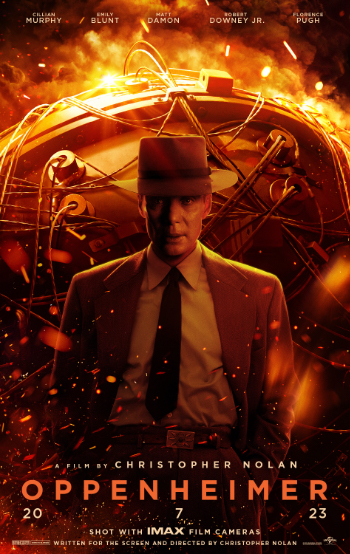
Movie Stills
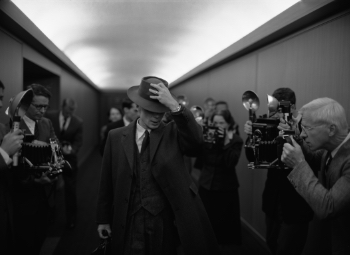



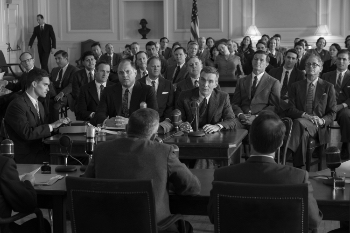
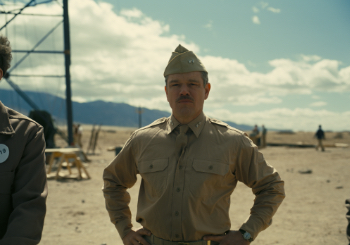

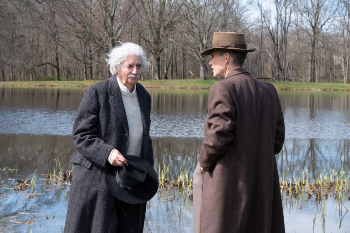
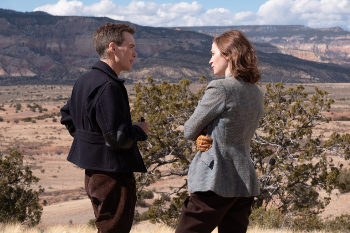
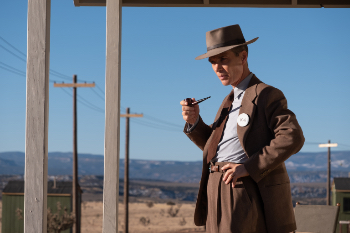


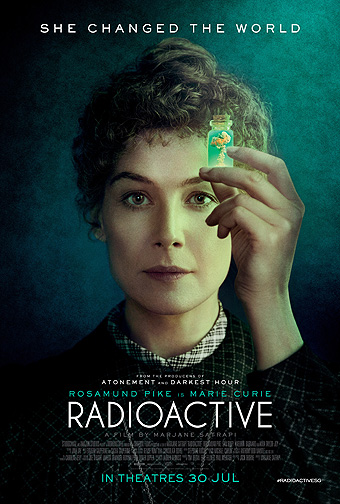
.jpg)
